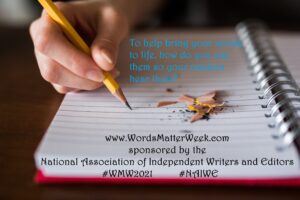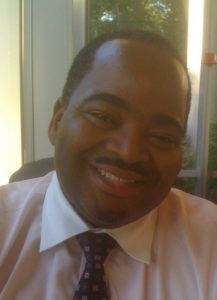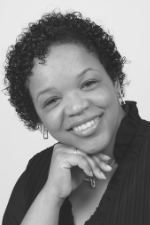 To help bring your words to life, how do you use them so your readers hear them?
To help bring your words to life, how do you use them so your readers hear them?
Prepare for the Writing Challenge
During Words Matter Week, we host a writing challenge. Each day we will post a question on our blog and various social media outlets.
Respond to the question on your blog or social media page (be sure to include #WMW2021 in your response), and then link back to it in the comments of the corresponding article on the NAIWE blog. For each challenge you respond to, you will receive one entry (and a bonus entry for each response written on your NAIWE blog).
At the end of the week, we will have a drawing, and one person will win a fabulous prize, along with a mention and link in the next newsletter.

 We wanted to get to know Kajli Prince (
We wanted to get to know Kajli Prince ( We wanted to get to know Stephen Colwell (
We wanted to get to know Stephen Colwell ( yre (
yre ( We wanted to get to know Brian Schwartz (
We wanted to get to know Brian Schwartz ( We wanted to get to know Claudia Suzanne (
We wanted to get to know Claudia Suzanne ( We wanted to get to know Tina Glasneck (
We wanted to get to know Tina Glasneck ( We wanted to get to know Dana Sitar (
We wanted to get to know Dana Sitar ( We wanted to get to know Kristen Fischer (
We wanted to get to know Kristen Fischer ( We wanted to get to know Mark Allen (
We wanted to get to know Mark Allen (